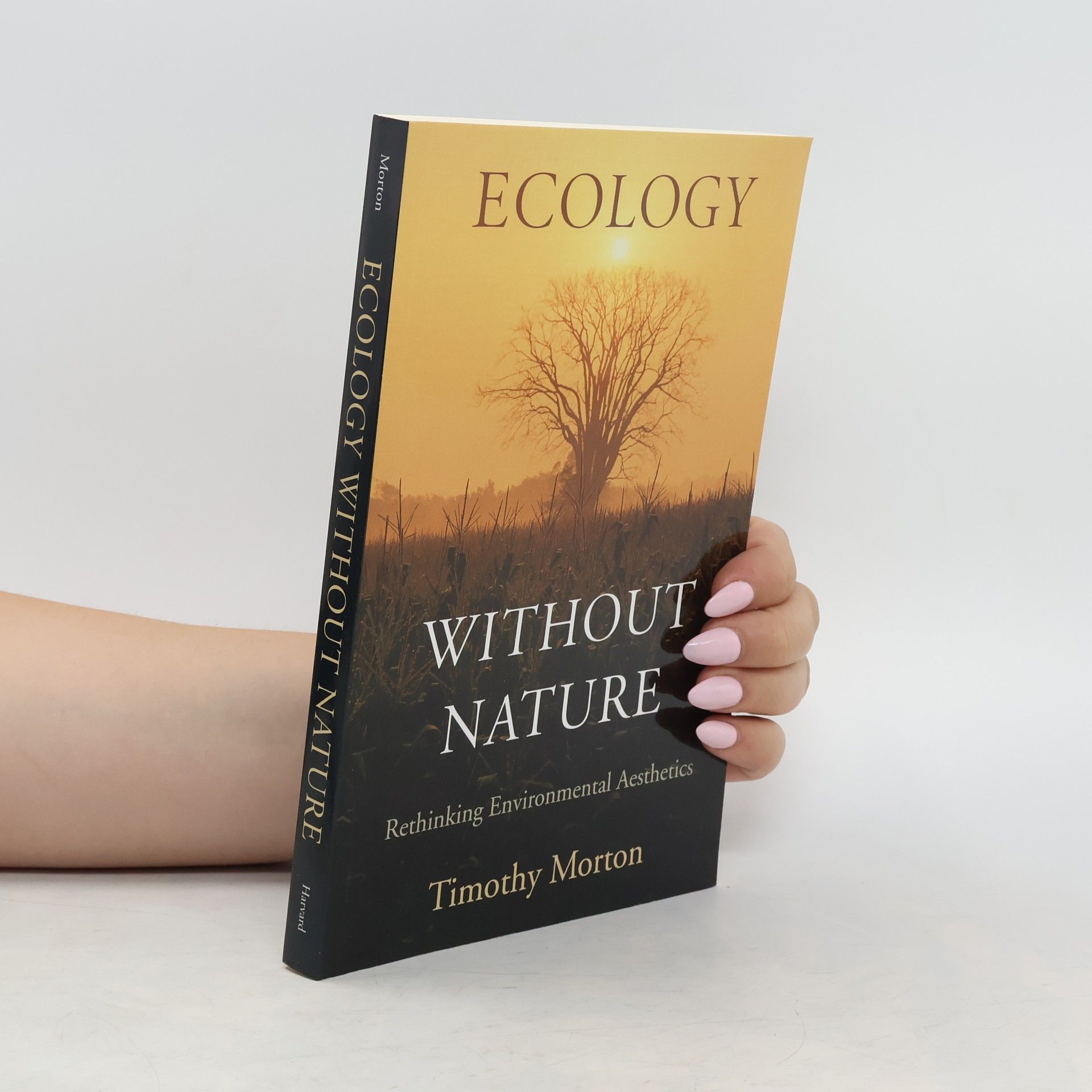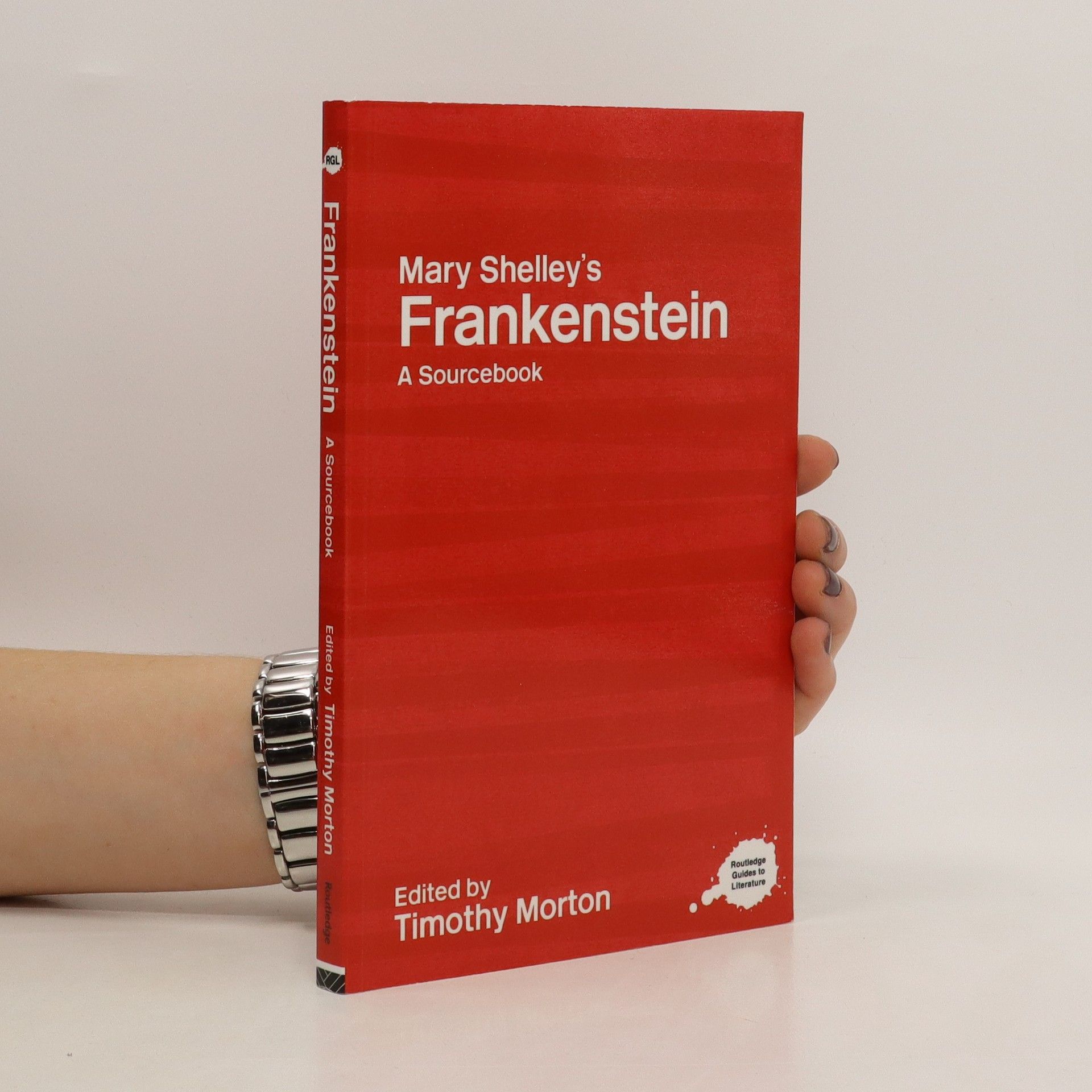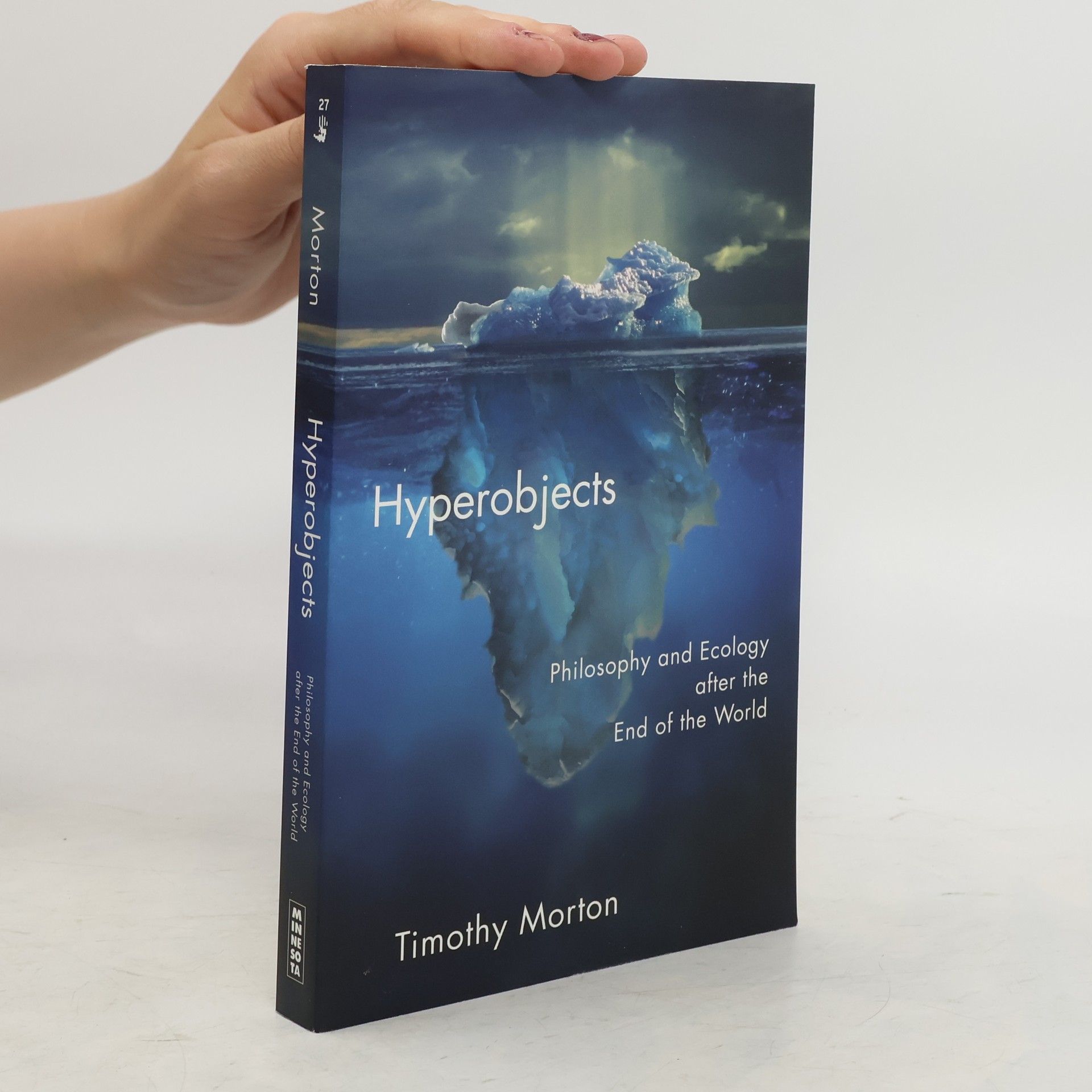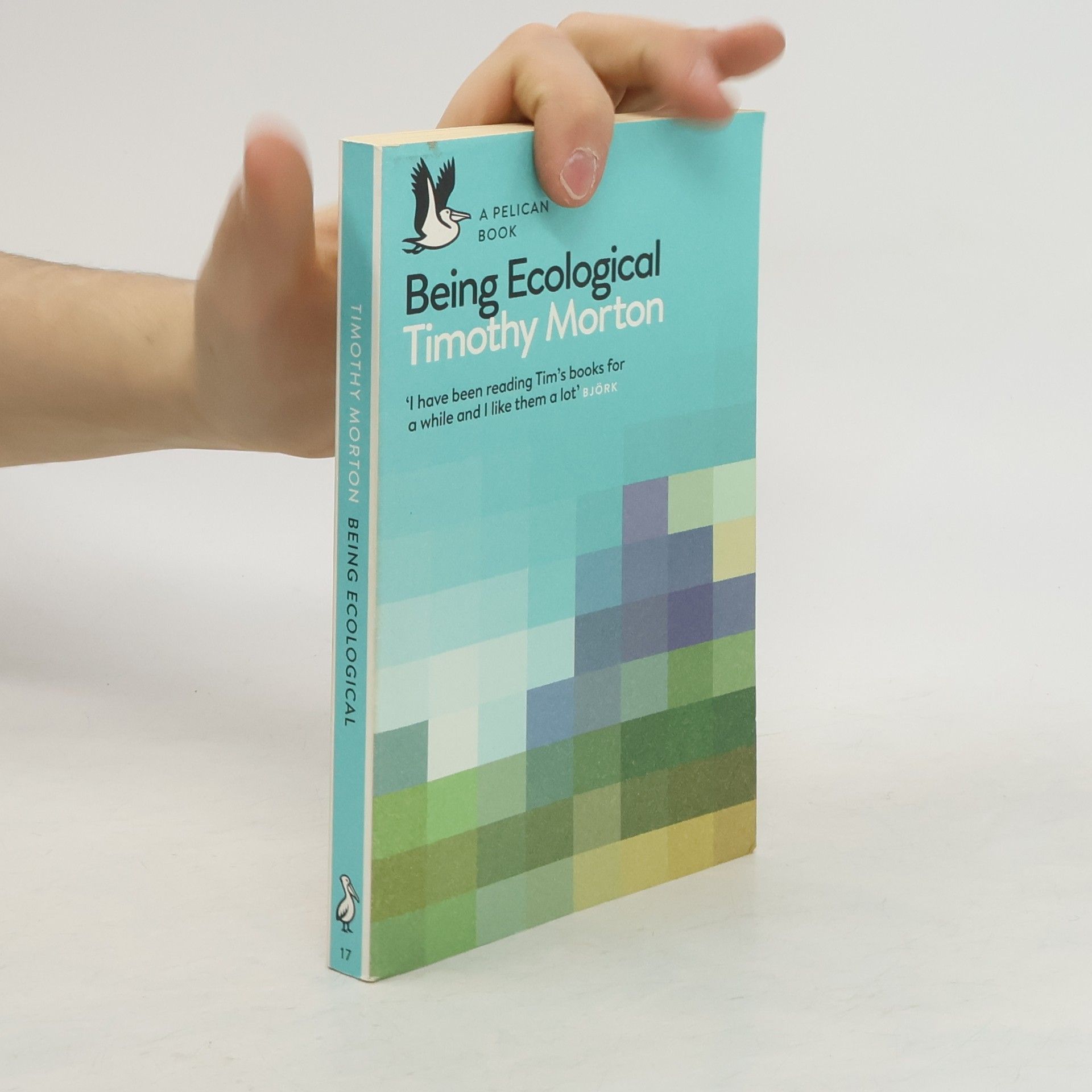This study offers a unique exploration of Shelley's ideas, connecting them to themes of diet, consumption, and the human body within the context of nature and culture. It delves into how these elements intersect with Shelley's philosophy, providing fresh insights into his work and its relevance to contemporary discussions on these topics.
Timothy Morton Libros
Timothy Morton es un pensador destacado cuyo trabajo aborda la compleja relación entre la humanidad y la ecología en el mundo contemporáneo. Su escritura, a menudo provocadora y profundamente filosófica, explora conceptos como hiperobjetos y ecología oscura para redefinir nuestra existencia presente. El análisis de Morton nos desafía a considerar nuestro lugar dentro del ecosistema y a encontrar nuevas formas de coexistir con el mundo que nos rodea. Su enfoque innovador de la crisis ecológica ofrece a los lectores nuevas perspectivas y estímulos para una reflexión más profunda.







The narrative revolves around the profound connection between a seemingly ordinary old teapot and the memories it evokes. Through its daily use, the teapot serves as a vessel for nostalgia, revealing more about the narrator's past than any written record. This exploration highlights themes of memory, the significance of everyday objects, and the stories they carry, inviting readers to reflect on their own experiences and the tangible links to their history.
Being Ecological, with a New Preface by the Author
- 224 páginas
- 8 horas de lectura
Focusing on ecology, this guide offers a refreshing perspective that avoids overwhelming readers with information or inducing guilt. It aims to engage a broad audience without preaching to those already aware of environmental issues. The new edition presents accessible insights into ecological challenges, making it a valuable resource for anyone looking to understand and engage with environmental topics meaningfully.
Mary Shelley's Frankenstein : a sourcebook
- 220 páginas
- 8 horas de lectura
Mary Shelley's Frankenstein is one of the most widely studied works of English literature, and Frankenstein's creature is a key figure in the popular imagination.This sourcebook examines Mary Shelley's novel within its literary and cultural contexts, bringing together material *the contexts from which Frankenstein emerged*the novel's early reception*adaptation and performance of the work (from theatre to pop music)*recent criticism.All documents are discussed and explained. The volume also includes offers carefully annotated key passages from the novel itself and concludes with a list of recommended editions and further reading, to allow readers to pursue their study in the areas that interest them most. This sourcebook provides an ideal orientation to the novel, its reception history and the critical material that surrounds it.
The Ecological Thought
- 184 páginas
- 7 horas de lectura
Argues that various forms of life are connected in a vast, entangling mesh and this interconnectedness penetrates different dimensions of life. This title investigates the profound philosophical, political, and aesthetic implications of the fact that these life forms are interconnected.
In Ecology without Nature, Timothy Morton argues that the chief stumbling block to environmental thinking is the image of nature itself. Ecological writers propose a new worldview, but their very zeal to preserve the natural world leads them away from the "nature" they revere. The problem is a symptom of the ecological catastrophe in which we are living. Morton sets out a seeming paradox: to have a properly ecological view, we must relinquish the idea of nature once and for all. Ecology without Nature investigates our ecological assumptions in a way that is provocative and deeply engaging. Ranging widely in eighteenth-century through contemporary philosophy, culture, and history, he explores the value of art in imagining environmental projects for the future. Morton develops a fresh vocabulary for reading "environmentality" in artistic form as well as content, and traces the contexts of ecological constructs through the history of capitalism. From John Clare to John Cage, from Kierkegaard to Kristeva, from The Lord of the Rings to electronic life forms, Ecology without Nature widens our view of ecological criticism, and deepens our understanding of ecology itself. Instead of trying to use an idea of nature to heal what society has damaged, Morton sets out a radical new form of ecological criticism: "dark ecology."
Humankind
- 224 páginas
- 8 horas de lectura
A radical call for solidarity between humans and non-humans
Hyperobjects
- 240 páginas
- 9 horas de lectura
A Quake in Being: An Introduction to Hyperobjects Part I. What Are Hyperobjects? Viscosity Nonlocality Temporal Undulation Phasing Interobjectivity Part II. The Time of Hyperobjects The End of the World Hypocrisies The Age of Asymmetry.
Dark Ecology
- 208 páginas
- 8 horas de lectura
Morton commands readers' attention with his free-form style.... (Dark Ecology) extends his previous work to offer a seismically different vision of the future of ecology and humankind. Publishers Weekly
Being Ecological
- 240 páginas
- 9 horas de lectura
'To read Being Ecological is to be caught up in a brilliant display of intellectual pyrotechnics' P.D.Smith, Guardian Why is everything we think we know about ecology wrong? Is there really any difference between 'humans' and 'nature'? Does this mean we even have a future? Don't care about ecology? This book is for you. Timothy Morton, who has been called 'Our most popular guide to the new epoch' (Guardian), sets out to show us that whether we know it or not, we already have the capacity and the will to change the way we understand the place of humans in the world, and our very understanding of the term 'ecology'. A cross-disciplinarian who has collaborated with everyone from Björk to Hans Ulrich Obrist, Morton is also a member of the object-oriented philosophy movement, a group of forward-looking thinkers who are grappling with modern-day notions of subjectivity and objectivity, while also offering fascinating new understandings of Heidegger and Kant. Calling the volume a book containing 'no ecological facts', Morton confronts the 'information dump' fatigue of the digital age, and offers an invigorated approach to creating a liveable future.

